Publications
Information theory
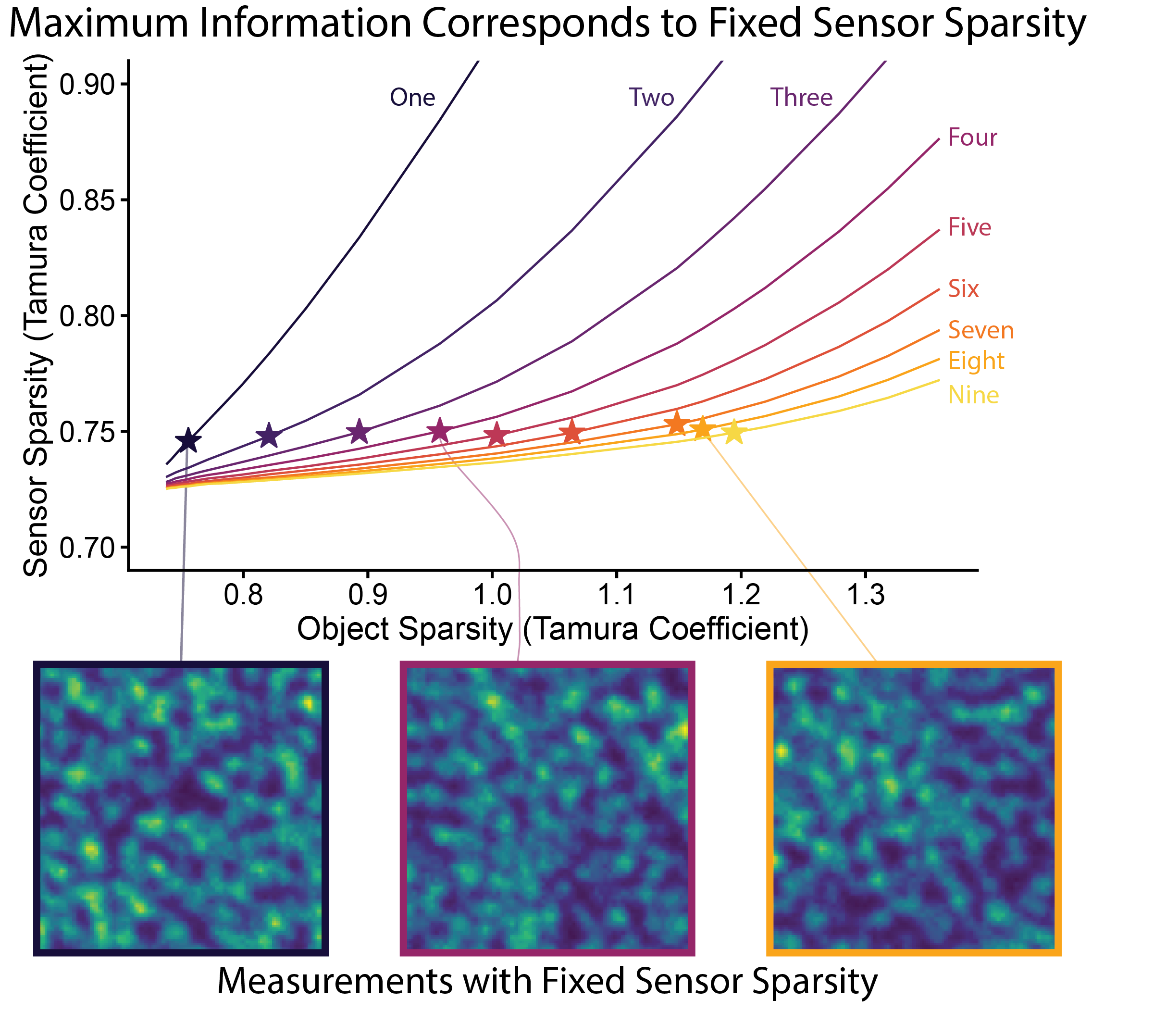
New!
Designing lensless imaging systems to maximize information capture
Leyla A. Kabuli, Henry Pinkard, Eric Markley, Clara S. Hung, and Laura Waller
Optica 2026
(website) / (paper) / (arXiv) / (code)
We evaluate and design lensless imaging systems using mutual information estimation. We establish design principles for object-dependent imaging, discover shared properties for information-optimal measurements, and validate our insights by designing encoders and analyzing experimental systems.
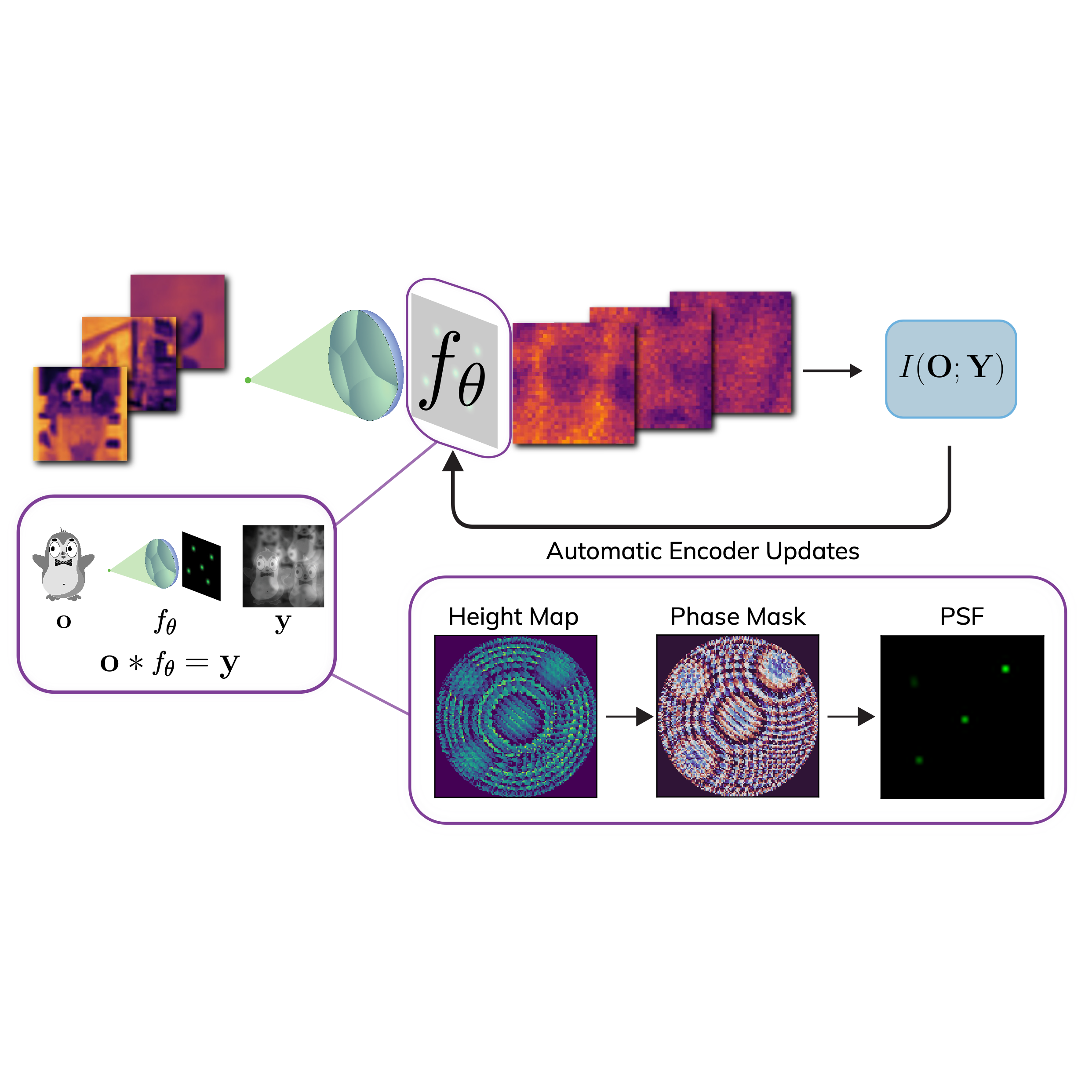
New!
Information-optimal phase mask design for lensless imaging
Leyla A. Kabuli, Eric Markley, and Laura Waller
SPIE Photonics West 2026 (Oral)
We use information-theoretic optimization to design phase mask encoders for lensless imaging systems. We analyze practical trade-offs for compact systems, including sensor-to-mask distance and mask feature size.

New!
Information-theoretic Bayesian optimization of imaging systems
Leyla A. Kabuli, Nalini M. Singh, Henry Pinkard, and Laura Waller
Optica Imaging Congress (COSI) 2025 (Oral)
(website) / (extended abstract)
We present a black-box imaging system design framework using Bayesian optimization and mutual information. Our approach, as demonstrated in lensless imaging and radio astronomy, does not require a forward encoding model, ground truth data, or image reconstruction.
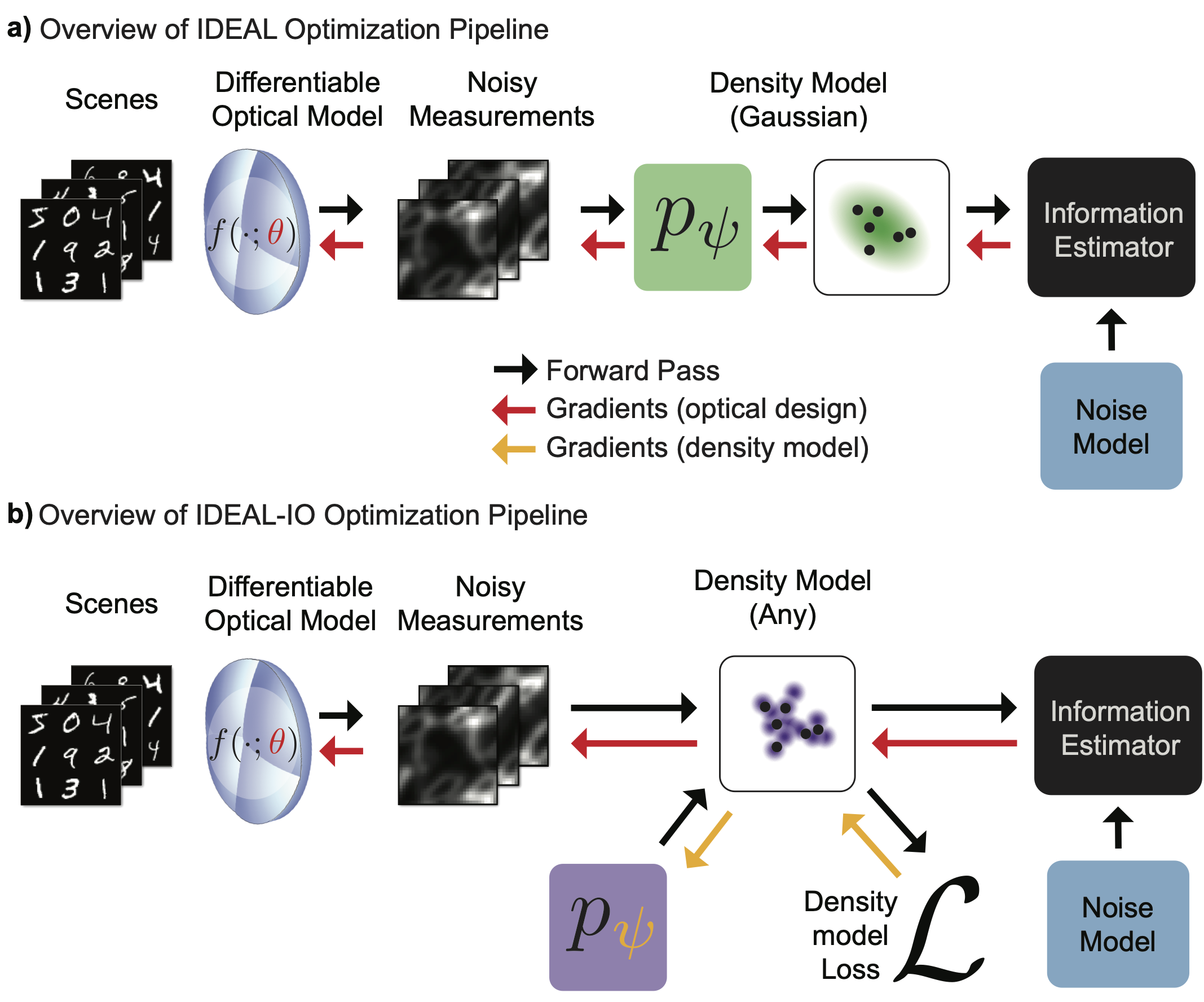
New!
Computationally Efficient Information-Driven Optical Design with Interchanging Optimization
Eric Markley, Henry Pinkard, Leyla Kabuli, Nalini Singh, and Laura Waller
arXiv
(arXiv)
We present an application-agnostic optical design method with reduced runtime, reduced memory usage, and flexible modeling, establishing information-theoretic optimization as a practical, scalable strategy for real-world imaging system design.
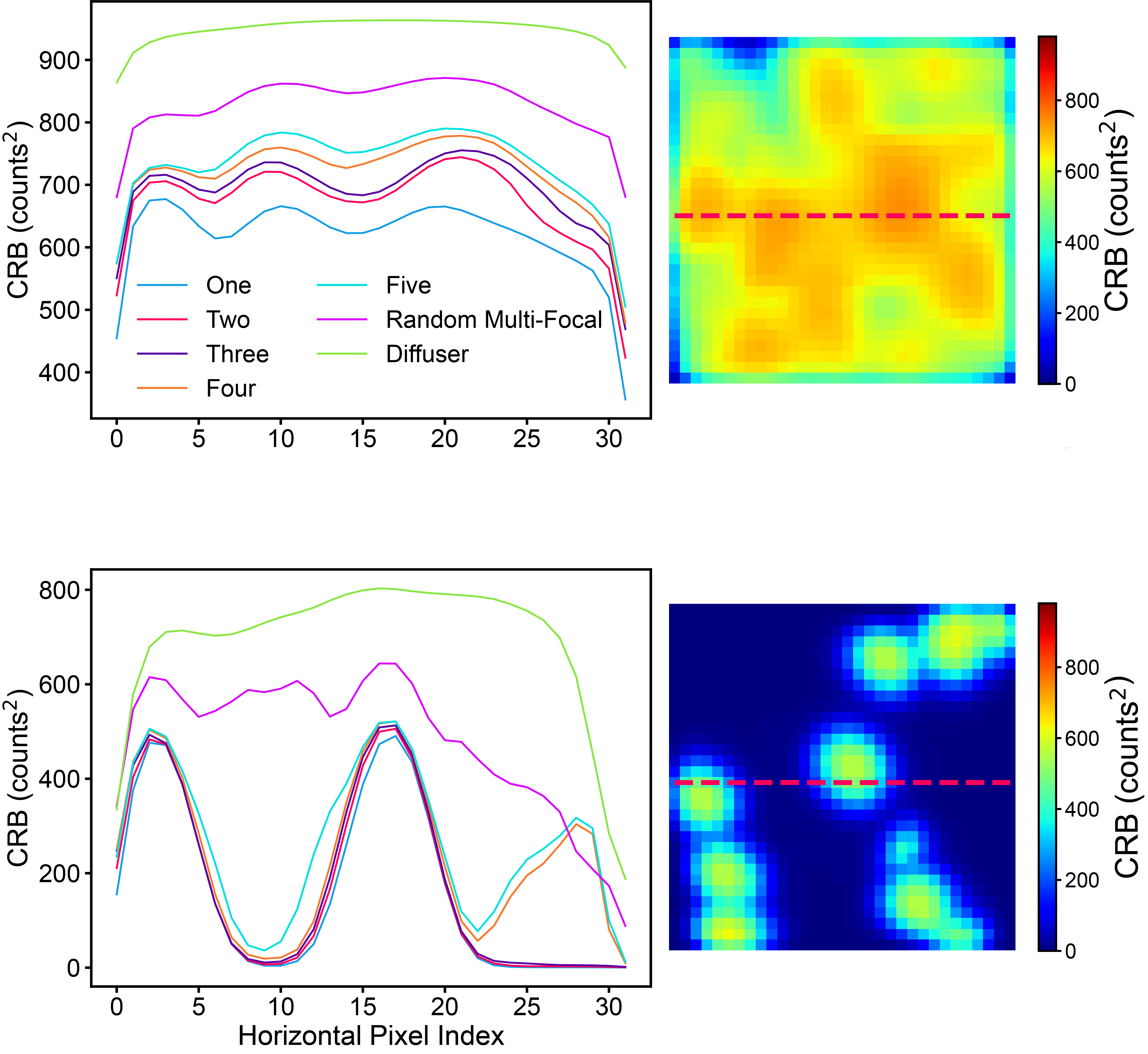 Estimation-theoretic analysis of lensless imaging
Estimation-theoretic analysis of lensless imaging
Leyla A. Kabuli, Nalini M. Singh, and Laura Waller
SPIE Photonics West 2025 (Oral)
(website) / (arXiv) / (paper)
We analyze lensless imaging systems with estimation-theoretic techniques based on Fisher information. We highlight tradeoffs between encoder multiplexing and object sparsity, showing quantitatively that sparse objects tolerate higher levels of multiplexing than dense objects.
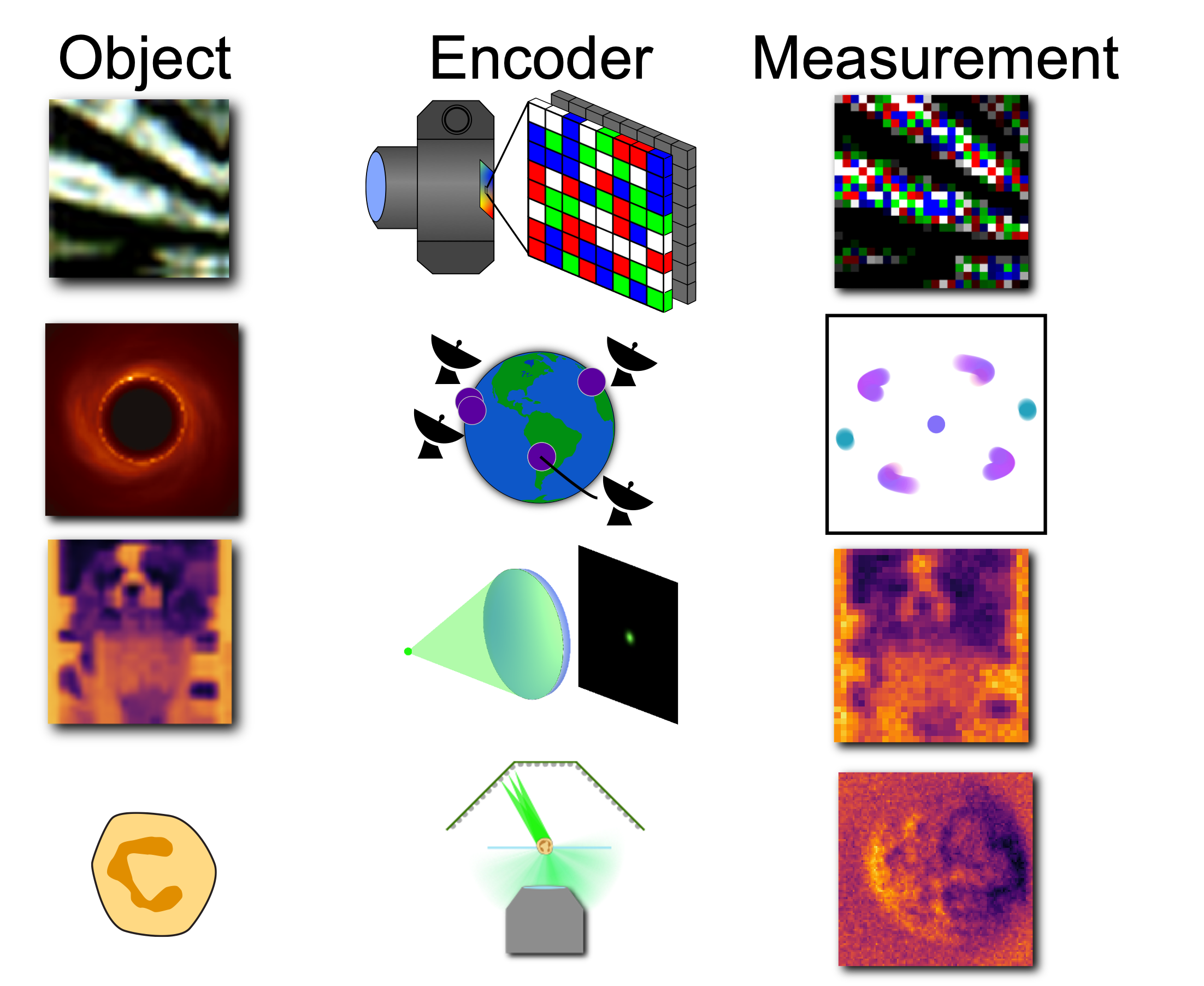 Information-driven design of imaging systems
Information-driven design of imaging systems
Henry Pinkard, Leyla Kabuli, Eric Markley, Tiffany Chien, Jiantao Jiao, and Laura Waller
NeurIPS 2025
(website) / (arXiv) / (code)
We present a method to measure and optimize how much information imaging systems capture, applicable to diverse systems ranging from consumer cameras to radio telescopes.
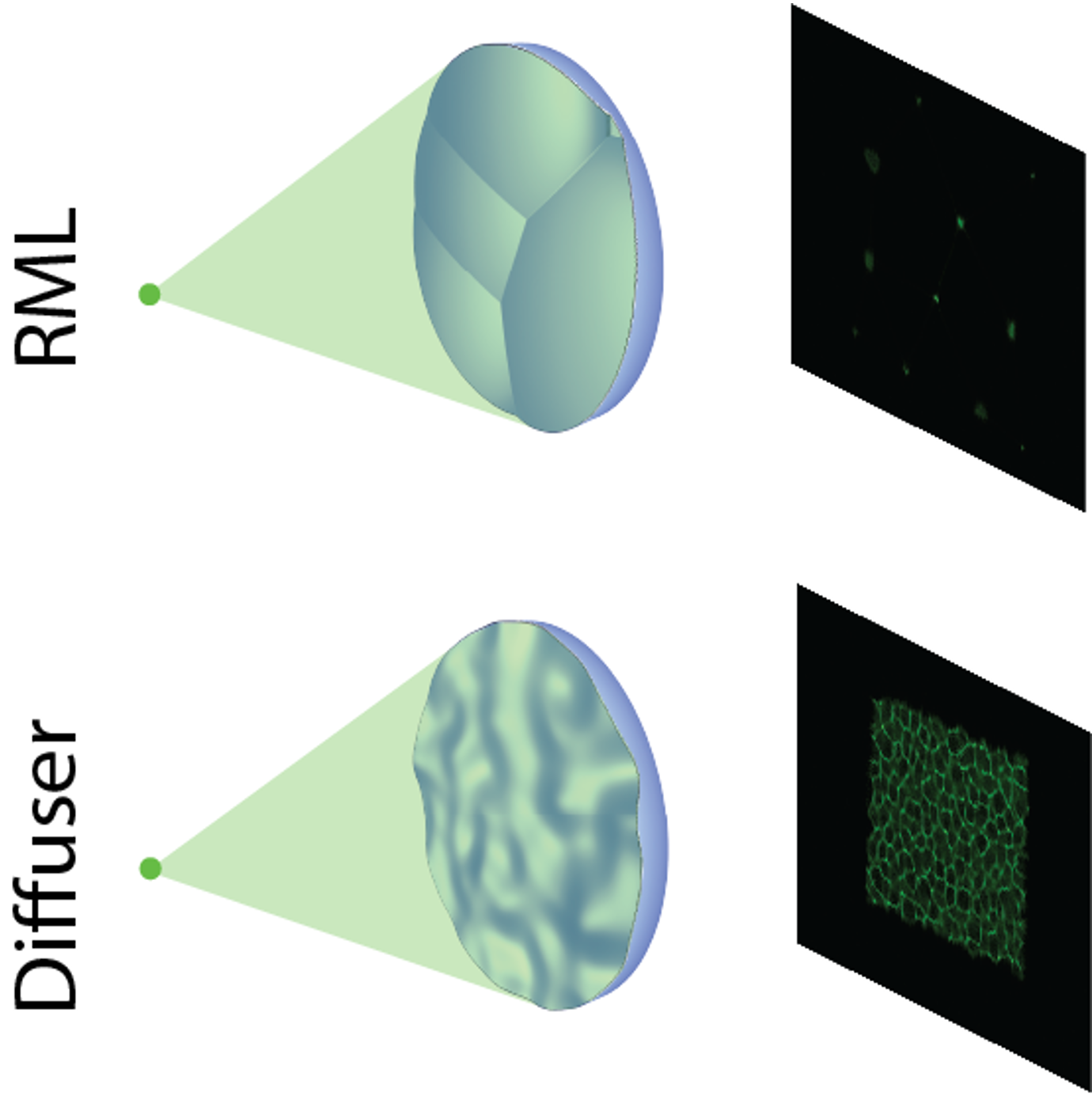 Information-theoretic experimental analysis of lensless imagers
Information-theoretic experimental analysis of lensless imagers
Leyla A. Kabuli, Clara S. Hung, Eric Markley, Henry Pinkard, and Laura Waller
Optica Imaging Congress (COSI) 2024 (Oral)
We analyze the information content of experimental data from lensless cameras with different phase mask encoders. We show that our mutual information metric predicts image reconstruction quality without performing a reconstruction.
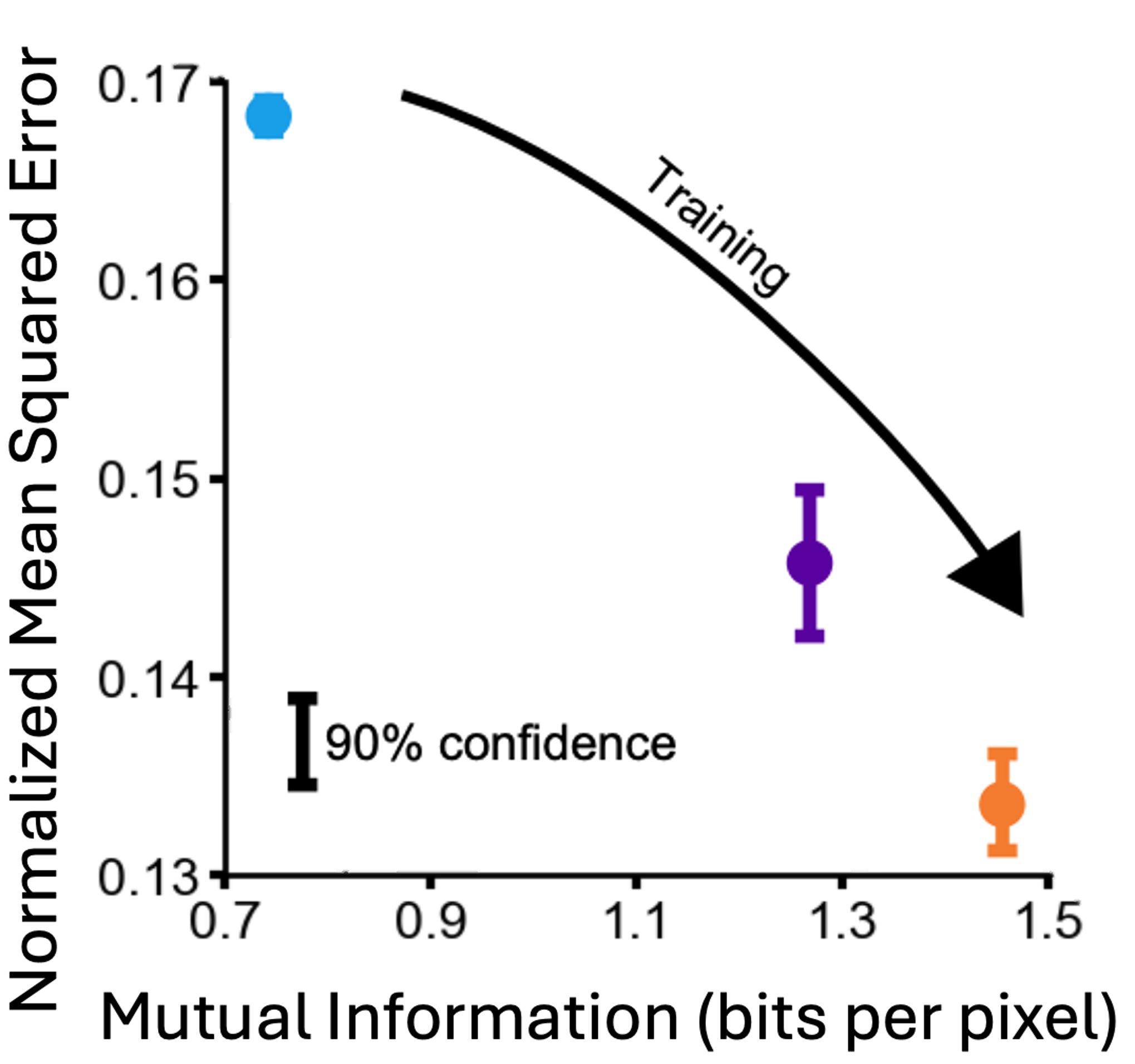 Information-theoretic design for high-dimensional computational imaging
Information-theoretic design for high-dimensional computational imaging
Eric Markley, Leyla Kabuli, Tiffany Chien, Henry Pinkard, and Laura Waller
Optica Imaging Congress (COSI) 2024 (Oral)
We present a technique for information-theoretic optimization of computational imaging systems. By directly evaluating measurement quality and decoupling optimization from downstream decoders, computational cost is reduced relative to end-to-end design.
Lensless imaging

New!
Extended field-of-view lensless imaging with random multi-focal lenslet arrays
Clara S. Hung, Leyla A. Kabuli, and Laura Waller
Optica Imaging Congress (COSI) 2025 (Oral)
We demonstrate extended field-of-view imaging beyond the sensor for phase mask-based lensless imagers in simulation and experiment. We discuss design tradeoffs including point spread function size, multiplexing, and sparsity.
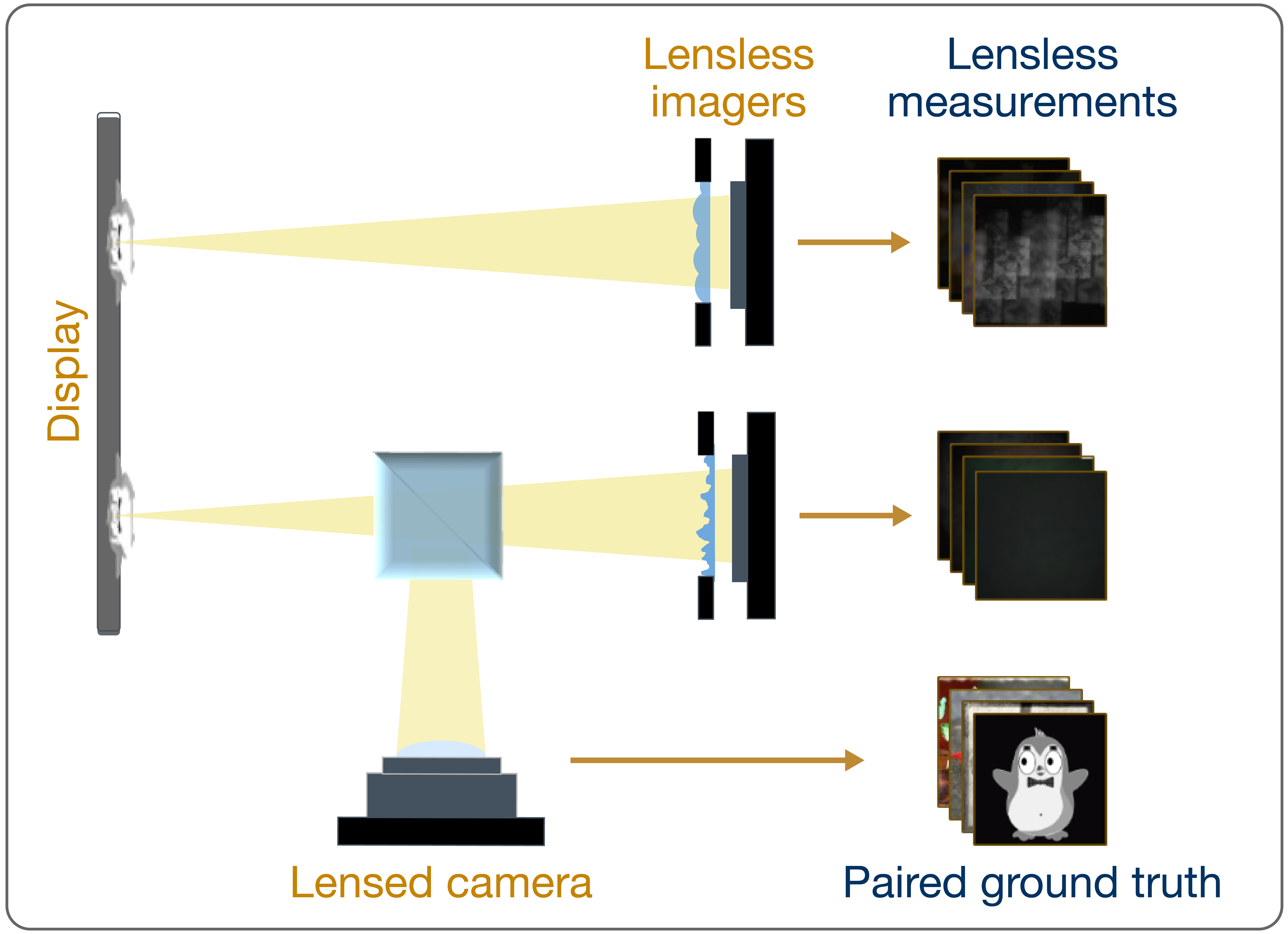 Scalable dataset acquisition for data-driven lensless imaging
Scalable dataset acquisition for data-driven lensless imaging
Clara S. Hung, Leyla A. Kabuli, Vasilisa Ponomarenko, and Laura Waller
SPIE Photonics West 2025 (Poster)
(website) / (arXiv) / (code)
We provide an open-access 25,000 image dataset with two lensless imagers, a reproducible hardware setup, and open-source camera synchronization code.
 Space-time reconstruction for lensless imaging using implicit neural representations
Space-time reconstruction for lensless imaging using implicit neural representations
Tiffany Chien, Ruiming Cao, Fanglin Linda Liu, Leyla A. Kabuli, and Laura Waller
Optics Express 2024
(paper)
We use an implicit neural representation as a flexible and computationally efficient space-time prior for video reconstruction, improving quality and noise robustness in lensless imaging systems.
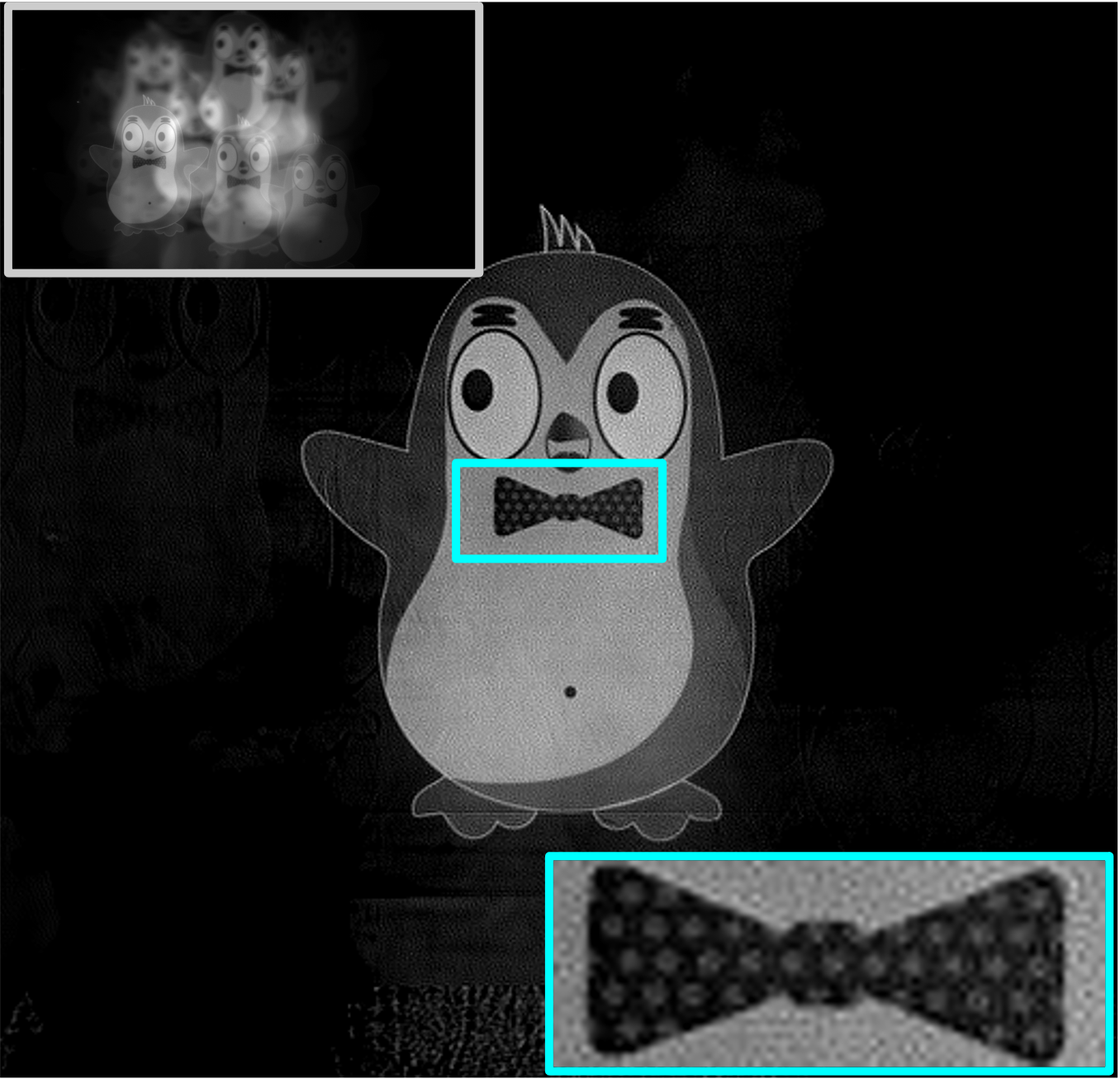 High-quality lensless imaging with a random multi-focal lenslet phase mask
High-quality lensless imaging with a random multi-focal lenslet phase mask
Leyla Kabuli, Gina Wu, and Laura Waller
Optica Imaging Congress (COSI) 2023 (Oral)
We present a lensless imager with a random multi-focal lenslet phase mask. This imager produces high-quality and high-resolution images with easy alignment and simple reconstruction algorithms with fast convergence.
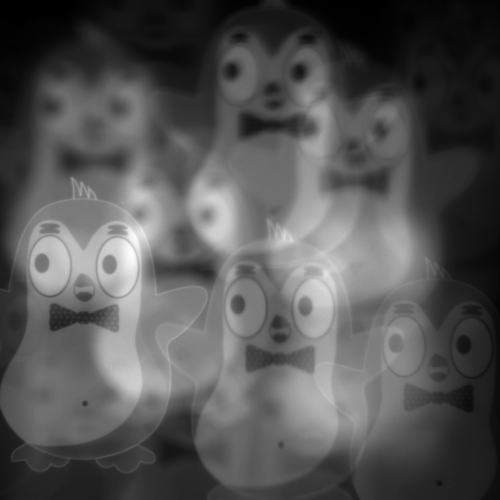 Replica artifacts in phase mask-based lensless imaging systems
Replica artifacts in phase mask-based lensless imaging systems
Leyla Kabuli, Chaoying Gu, and Laura Waller
Optica Imaging Congress (COSI) 2023 (Oral)
Images from phase mask-based lensless cameras have artifacts, previously attributed to noise and model mismatch. We attribute one type of artifact to the point spread function autocorrelation and present artifact reduction methods.
Holography
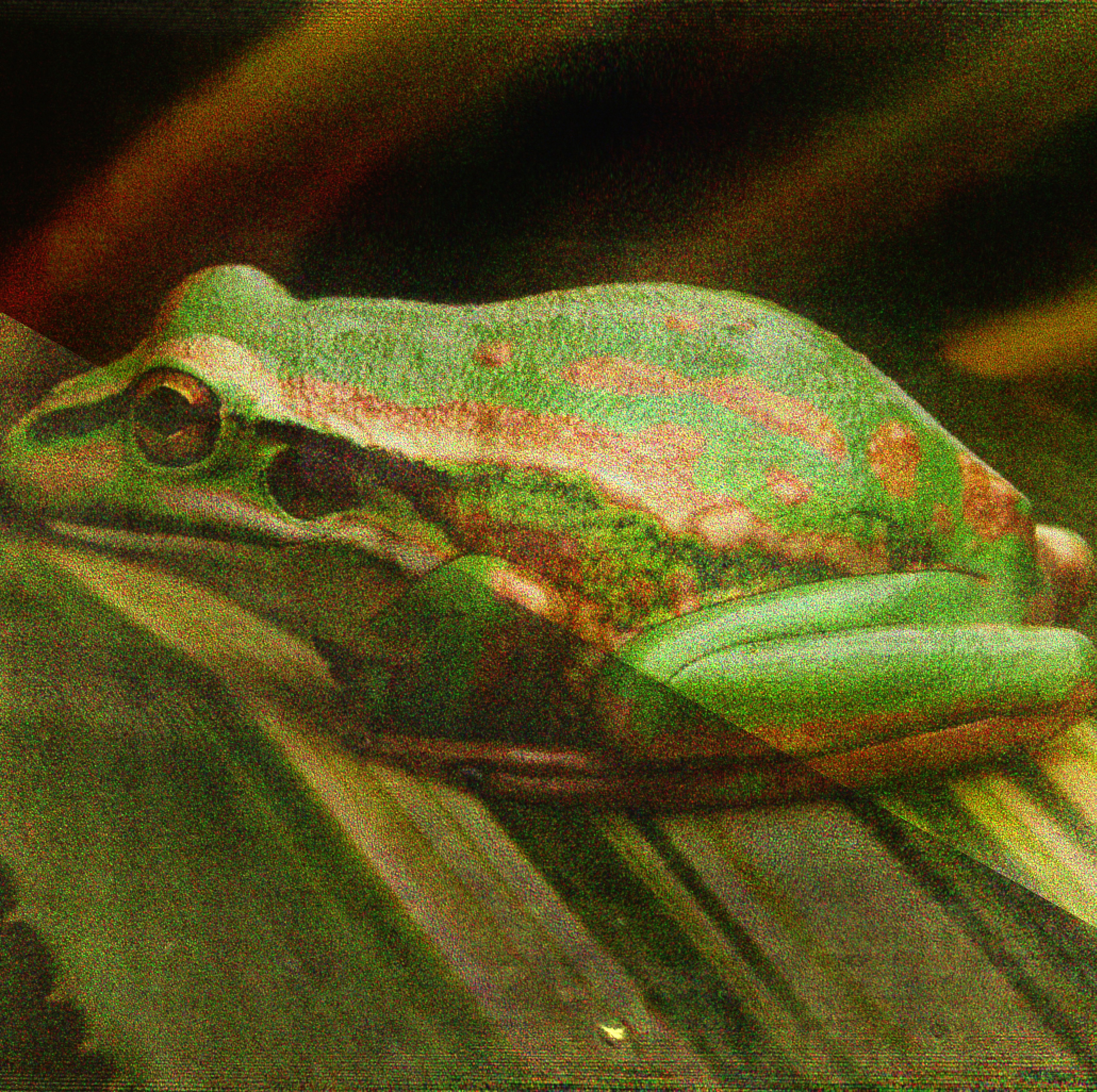
New!
High contrast holography through dual modulation
Leyla Kabuli, Oliver Cossairt, Florian Schiffers, Nathan Matsuda, and Grace Kuo
Nature Scientific Reports 2025
(paper) / (arXiv)
We propose an architecture for improved image contrast in holographic displays that uses a low-resolution amplitude spatial light modulator and a high-resolution phase spatial light modulator. Dual modulation can improve contrast while maintaining compact form factor.
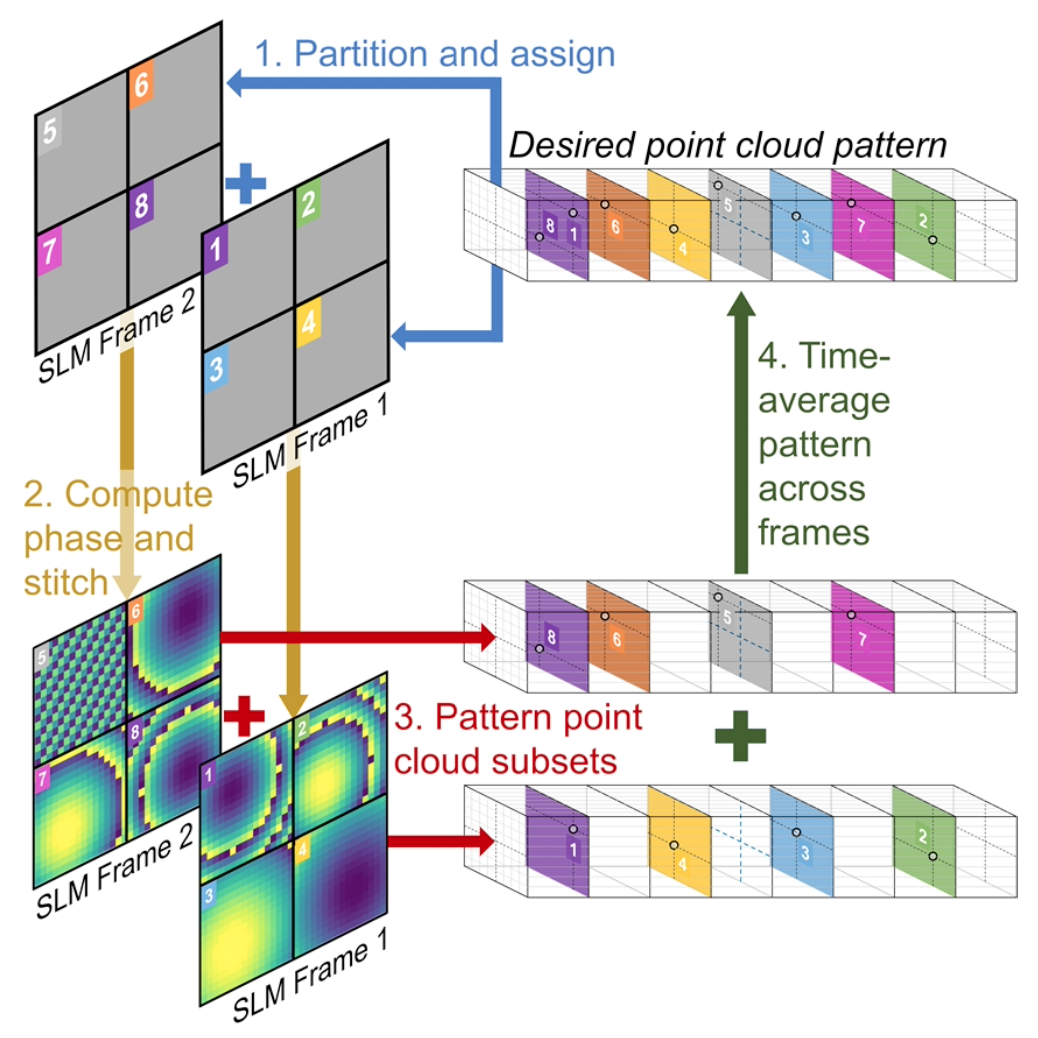 Fast, non-iterative algorithm for 3D point-cloud holography
Fast, non-iterative algorithm for 3D point-cloud holography
Nathan Tessema Ersaro, Cem Yalcin, Liz Murray, Leyla Kabuli, Laura Waller, and Rikky Muller
Optics Express 2023
(paper)
We introduce a non-iterative point cloud holography algorithm that improves speed and efficiency of 3D pattern generation for sparse targets.
 Observing vorticella feeding currents with digital in-line holography particle tracking
Observing vorticella feeding currents with digital in-line holography particle tracking
Leyla Kabuli, Brett Klaassen van Oorschot, Rachel Pepper, and Laura Waller
Optica Imaging Congress (COSI) 2022 (Oral)
We observe feeding currents of aquatic organisms with a compressive digital in-line holography particle tracking system.
Synthetic aperture radar
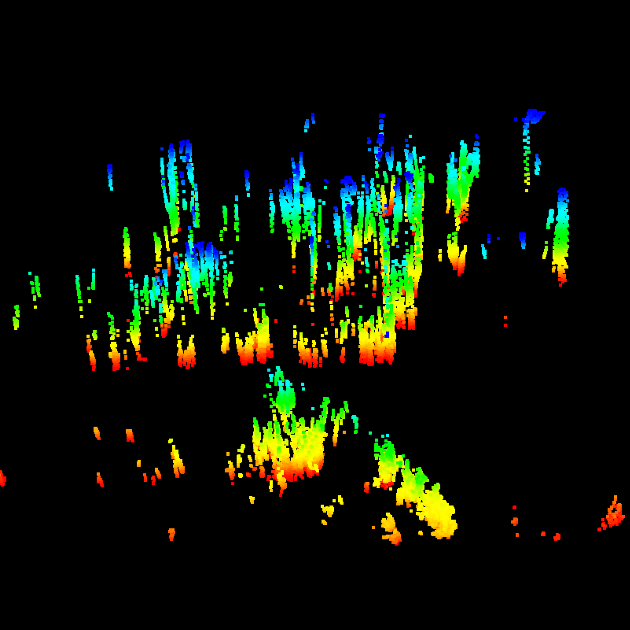 Automotive elevation mapping with interferometric synthetic aperture radar
Automotive elevation mapping with interferometric synthetic aperture radar
Leyla A. Kabuli and Griffin Foster
arXiv, IEEE CISA 2024 (Oral)
(arXiv) / (paper)
We use low-cost radar arrays and interferometric synthetic aperture radar techniques to create detailed point clouds for real-time low-latency mapping of complex automotive environments.
Phase imaging
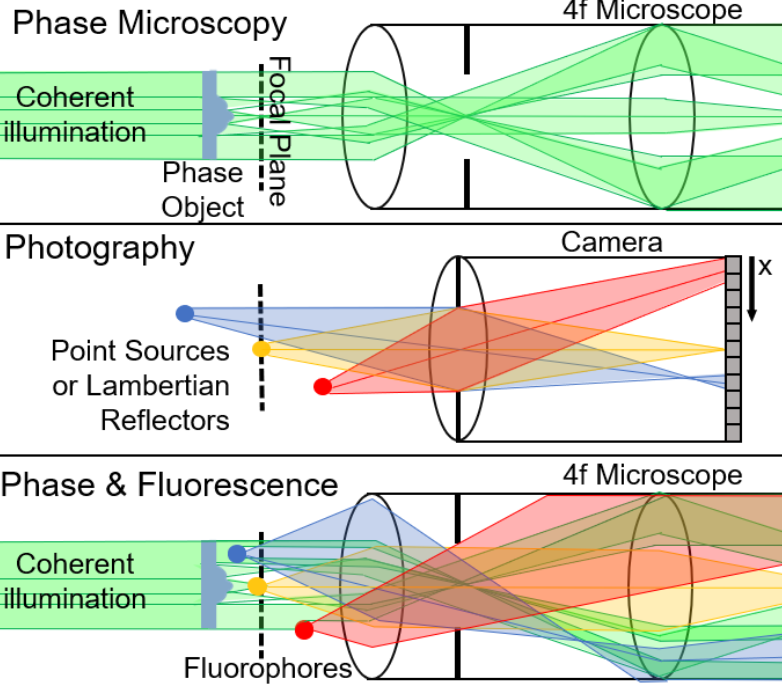 Depth from defocus as a special case of the transport of intensity equation
Depth from defocus as a special case of the transport of intensity equation
Emma Alexander, Leyla A. Kabuli, Oliver S. Cossairt, and Laura Waller
ICCP 2021
(paper)
We show that Depth from Differential Defocus in photography can be interpreted as a special case of the Transport of Intensity Equation in microscopy, with the level of spatial coherence determining the usefulness of each technique.